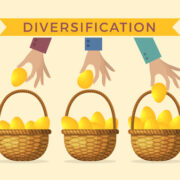Self-Directed Solo 401k Eligibility
The Self-Directed Solo 401k is a top-notch retirement vehicle for certain small business owners and self-employed individuals and couples. With maximum combined contributions of up to $54,000 in 2017, the flexibility to establish a Roth account within your 401k plan, the ability to engage in self-directed investment strategies such as direct ownership of real estate, and the ability to borrow against your 401k balance if you choose to structure your plan to allow it, the Solo 401k plan is both versatile and powerful. It also has unmatched power as an asset protection vehicle, nearly impervious to creditors.
But the Self-Directed Solo 401k plan is not for everybody. There are certain criteria that have to be met even to establish a Solo 401k or make contributions. And it’s not always the best answer for growing companies.
Here are the important eligibility criteria for Solo 401k plans, to include Self-Directed Solo 401k plans:
- You must have self-employment or owner-employee income. That is, you must be able to show income from self-employment, or via your own C corporation, S corporation, partnership, or LLC.
- You must not have any full-time employees in your company, other than yourself and a spouse.
Unlike IRAs, there are no maximum income thresholds or phase-outs that affect your ability to establish a Solo 401k or Self-Directed Solo 401k. The same goes for Roth solo 401ks and self-directed solo Roth 401ks. You can establish and contribute to a Solo 401k no matter how much money you are earning or project to earn. There are limits to how much you can contribute, of course, but simply earning too much will not make you ineligible for the Solo 401k altogether.
One advantage to Solo 401ks: You will not find your contributions limited because you can’t convince rank and file employees to contribute enough, thereby triggering “top hat” restrictions on highly-compensated employees. As long as you and your spouse are the only full-time employees in the company, you don’t need to worry about these non-discrimination provisions.
Part-timers
You yourself do not have to work full-time in order to enjoy the benefits of participating in a solo 401k. As such, the solo 401k is potentially a great solution for semi-retired persons, as well as those with part-time occupations and practices.
Coordination with other retirement plans.
You can participate fully in your Self-Directed Solo 401k even if you already have an IRA, or you participate in another retirement plan at another workplace. However, eligibility for IRA contributions could be affected if you do have access to a solo 401k plan. Call us at American IRA, LLC if you have questions: 866-7500-IRA(472).
Employees.
Generally, to maintain eligibility for a solo 401k plan, you can’t have any full-time employees in your business other than yourself and your spouse. However, you can have other employees. Current law exempts employees under age 21, employees who work fewer than 1,000 hours, and non-resident aliens. You can also exempt union employees, who are generally provided for under their collective bargaining agreement.
Solo 401k plan sponsors can also have all the part-time employees and independent contractors they want without affecting solo 401k eligibility.







